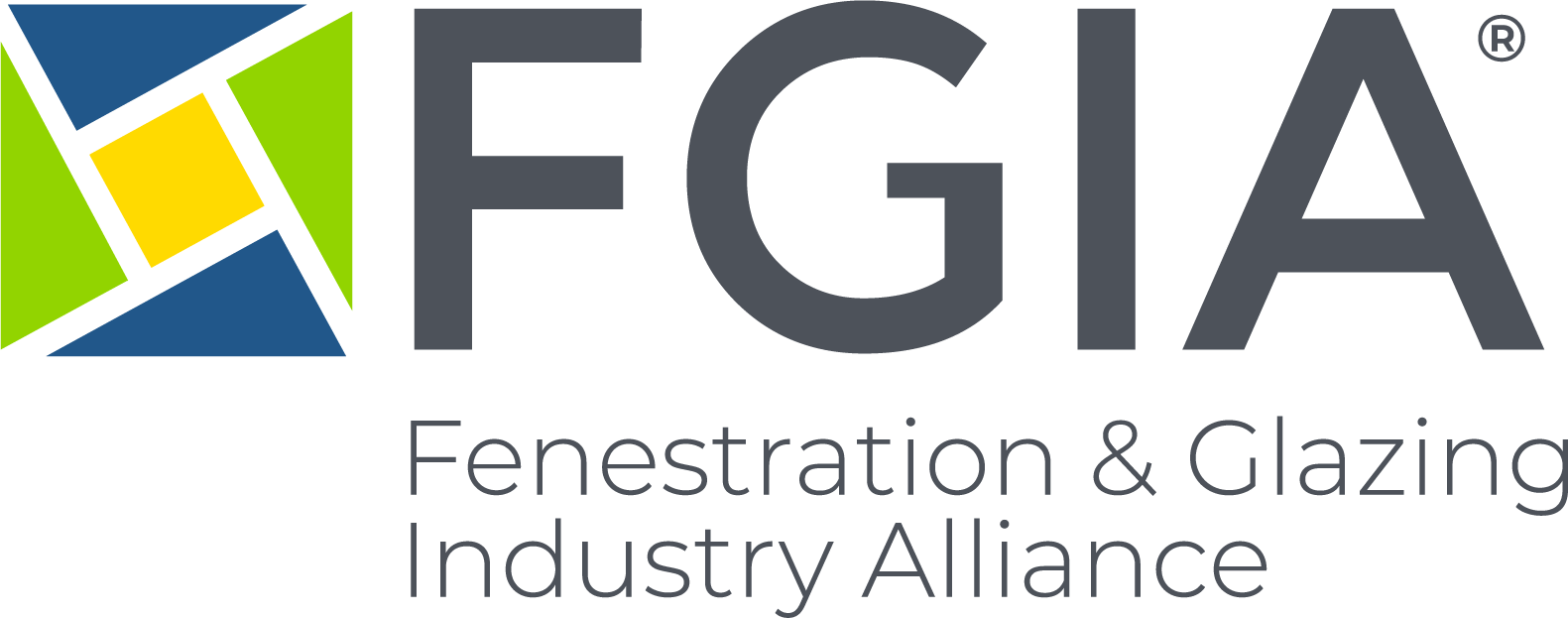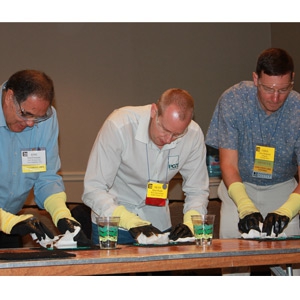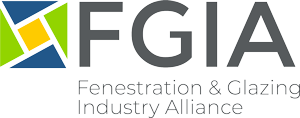- Blog
- Member Edge
- Structural Engineer Sarah Erickson Values Business Sense, Industry Involvement
June 28, 2019
Structural Engineer Sarah Erickson Values Business Sense, Industry Involvement

Sarah Erickson, PE, works at Apogee Enterprises and is responsible for the structural analysis of projects, including preparing redlines for the design team and formal stamped calculation packages for project submittals. Additionally, she mentors new associates, manages projects sent to external structural engineering consultants, assigns structural engineers to new projects as they come in and participates in continuous improvement events. She also represents her company at AAMA, so we spoke with her to discuss her career so far.
Give me a brief history of your professional background and how you originally became involved in the industry.
I was drawn to the commercial construction industry at a young age. I wanted to build modern structures, and I wanted to be responsible for bringing them from paper to reality. As an undergraduate, I studied civil engineering, focusing on structural engineering, at the University of Minnesota Twin Cities and fell into the fenestration industry, as most of us did, after graduation.
What accomplishment are you most proud of regarding your work as an AAMA member?
I had only been working in the fenestration industry for two and a half years when I started attending AAMA events so it was a bit overwhelming at first, but I did my best to get involved and absorb as much as I could at every event. I have now been participating in AAMA for three years, and I am leading the task group that is developing a new procedure for testing operable windows left in the un-latched position. We aren’t finished yet, but I’ve been learning a lot about operable windows and AAMA processes, and I’m really proud of the work we are doing.
Where do you see the fenestration industry in the next 10 years?
I expect to see smart technologies applied to fenestration products more widely than they are today. I also expect to see these smart technologies evolve and have even more applications than they do today.
How can the industry work together to be more successful?
Participate in industry organizations such as AAMA. I think working together to create the rules for our industry is the best way to stimulate fair competition and ensure safe products are available to the public. More involvement in industry organizations, in my opinion, will lead to better rules, stiffer competition and more success for the industry at large.
What advice do you wish someone would have given you as you began your career?
“You aren’t stressed out; you just have too much to do.” A few years ago, I took a class called “conversations with CEOs” as a part of the MBA program I was in, and one of the CEOs explained the difference, as he saw it, between being stressed out and having too much to do. It stuck with me.
He explained that stress only comes from the infrequent situations where you don’t know how to complete the tasks in front of you. The more common situation is the one where you know how to complete all the tasks in front of you, and you feel pressure because you can’t find the time to complete them all. But that pressure isn’t stress; you just have too many things to do. The point he was trying to make is that as you advance in your career you will naturally accumulate more responsibility and tasks as you gain knowledge and experience, and you will have to learn how to manage your time and the people around you to complete your tasks because you won’t be able to do everything yourself. If you never acquire this skill and always try to do everything yourself, then you will always have too much to do and will spend every day of your career thinking you are “stressed out”.
What is the best advice you’ve received in your career so far?
I’m glad I was encouraged to get a Master of Business Administration degree instead of a Master of Science degree. I finished my undergrad in 2009, which wasn’t a great time to try to enter the commercial construction market. After a few years of not finding an entry level structural engineering position, I decided that I needed to pursue a master’s degree. I didn’t even know they let engineers go to business school until a friend of mine suggested that it would be the better option for me. It was a hard sell. Over the course of a couple months, my friend convinced me that an MBA would be better for me than an MS, so that’s what I ended up pursuing. I have no regrets. I believe that my business education and how I grew as a professional while going through the program is largely responsible for how much I’ve been able to accomplish in the first five years of my career, and I believe it will continue to open doors for me in the future.
Who has been most influential for you in your professional life?
Steve Fronek, who is no longer my boss, so I can say that with no self-interest! Steve has been a significant influencer for me at our company since the first day I joined. When I started, he didn’t try to force me into a mold or set my pace for me; instead, he trusted me as I took on more and more responsibility and checked in frequently enough to make sure I was staying on track. He also let me explore other areas of the business that I was interested in and found opportunities for me to get involved in things outside of my job description, like going on sales calls, attending technical conferences and getting involved in AAMA.
Would you like to add anything else?
Involvement in an industry organization is an excellent way to grow as an individual because it gives you exposure to your industry at large. Sitting in the same office every day seeing nothing but your company’s own products doesn’t inspire innovation, and lack of innovation is bad for every company. I think investing in sending employees to industry organizations and/or conventions is well worth it because it stimulates innovation for your company and encourages individual growth by showing your employees that you are willing to invest in their development.







Submit a Comment